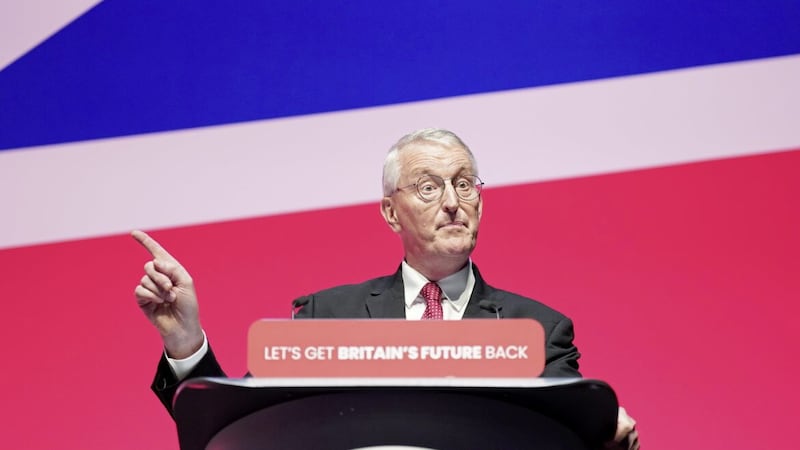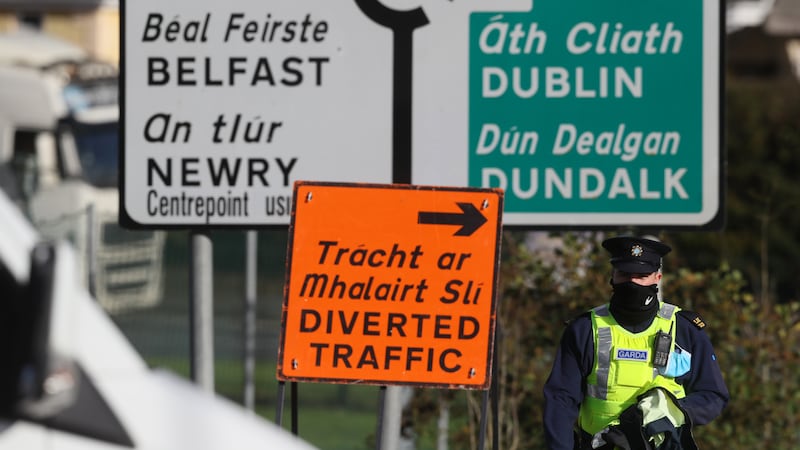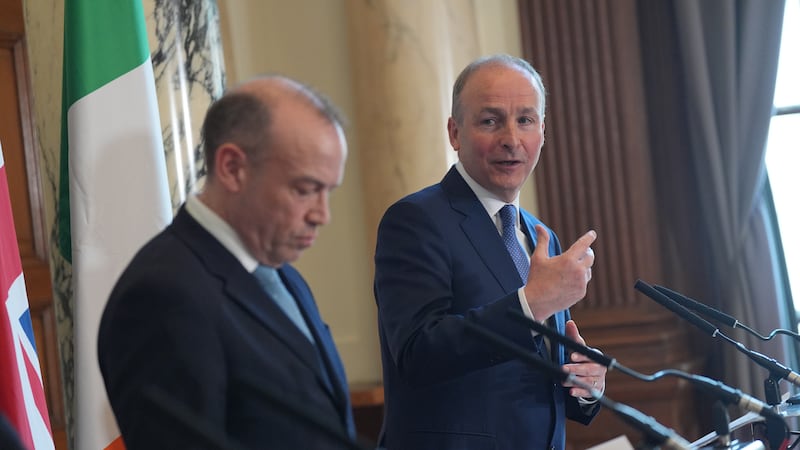'Britain’s Future' served as the slogan for the Labour Party conference in Liverpool this week, perhaps an unsurprising thematic decision given that the party doesn’t run candidates in Northern Ireland, but also symbolic of how far down the totem pole Northern Ireland is for a British party that is, ultimately, intended to serve people in Britain.
The Good Friday Agreement is often cited as one of Labour’s greatest achievements, but the subject of the landmark peace deal, in its 25th anniversary year, was notably absent from the conference agenda and motions.
There’s no question that former Prime Minister Tony Blair and his Secretary of State Mo Mowlam played integral roles in ending three decades of violent conflict but, like many of the political players at the time, Labour was guilty of complacency post-1998.
Read more:
Brian Feeney: Let's be clear: Starmer did not rule out border poll
Tom Collins: Keir Starmer's leadership fails the 'granny test'
Tom Kelly: The tide is out for these out-of-touch Tories
At the conference this week, South Belfast MP Claire Hanna said “we can’t get a Labour government quick enough”, and while Labour will almost certainly be better than the monstrous incarnation of the Conservative Party that has been cannibalizing UK politics, it’s clear that Labour’s priority continues to be Britain.
Newly-appointed Shadow Secretary of State Hilary Benn was not short on words regarding the need to restore Northern Ireland’s political institutions, but he was short on substance. Asked how Labour would approach restoring the institutions, Benn stated that Labour “would apply the principles of the Good Friday Agreement”.
When asked about Stormont reform – an increasingly pertinent topic – he replied that reform was “tricky” and implied that consensus would be needed from political parties.
If that consensus is to include the DUP, then reform seems unlikely to ever happen; Why would the party give up the only leverage it has left?
When trapped long enough in a cycle of political destruction, it’s not uncommon to be convinced that any alternative would be an improvement, and that once another leadership group takes office, the wrongs will finally be righted. History, however, tells us otherwise.
The Labour Party was in government for over a decade following the Good Friday Agreement, during which time the Civic Forum was disbanded, a Northern Ireland Bill of Rights was scrapped, and Northern Ireland had no functioning government for five years. Had Labour ensured that the Civic Forum and Bill of Rights were implemented at the time, Northern Ireland would likely be in a much better place today.
When asked about the unimplemented portions of the Agreement, Benn proposed it was “for the devolved institutions”, but of course the British government holds responsibility here as well. The 2003 Joint Declaration committed the government to legislate for the Bill of Rights ‘where required’. St Andrews committed it to the establishment of a Bill of Rights Forum. When the Northern Ireland office subsequently took a minimalistic approach to Bill of Rights recommendations, ultimately dust-binning efforts to bring forward legislation, it was the Labour Party who were in power.
Benn did not give much away in terms of how this Labour government would be any different. The party has committed to repealing the Conservatives’ offensive Legacy Act, but what is Labour’s alternative? There’s a glaring lack of detail, purpose, or intent in addressing the many outstanding issues that plague Northern Ireland’s peace process. There are any number of commitments Labour could make, such as reverting to the New Decade, New Approach agreement to table Stormont House legislation on legacy within 100 days.
There was little wiggle-room for Benn to avoid questions on the prospect of a border poll following comments from his party leader Keir Starmer that a referendum “isn’t even on the horizon”. Benn said this statement “reflects reality”.
The reality is that Brexit has ultimately changed the timeline, and the objective, of a united Ireland. For many, a united Ireland is now about a return to the European Union, a potentiality that Labour has explicitly ruled out for the UK.
Since the 2016 Brexit referendum, pro-union and pro-unity campaign groups have been established, universities across these islands are undertaking considerable research into constitutional change, and Sinn Féin – “the united Ireland party” – has been returned as the largest party at both national and local level. The trajectory we are on is clear. What isn’t clear is Labour’s policy.
The Shadow Secretary of State claimed that the Good Friday Agreement is “clear” on a border poll. However, what the Agreement actually does is grant discretionary powers to the Secretary of State to call a referendum at any time, and a legal obligation to do so if it appears that a majority would vote in favour of a united Ireland.
We have been given absolutely no detail as to how any Secretary of State for Northern Ireland would measure support for a united Ireland. Benn’s predecessor committed to outlining what the criteria for calling a border poll would be – will the new Secretary of State make good on that commitment?
Ultimately, we need to temper our expectations. Labour may be more palatable than the Tories, but the party will be no panacea for Northern Ireland’s problems.
This conference was safe in every sense of the word. This is a party that is cautiously trying to return to the forefront of British politics, and it seems evident they believe wading into the sticky mess of Northern Ireland’s imperfect peace won’t help them to achieve that.








